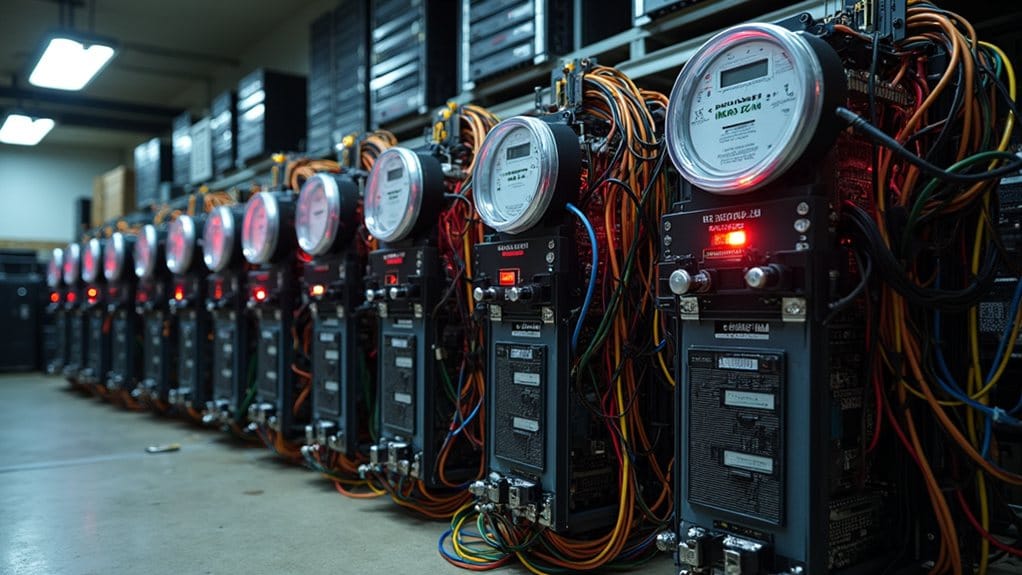Numerous illegal crypto mining operations across Thailand have been dismantled following extensive raids by Thai authorities, resulting in the seizure of over 1,000 Bitcoin mining machines and associated equipment valued at millions of dollars. The Crime Suppression Division, working alongside the Provincial Electricity Authority, conducted coordinated operations in multiple regions including Chonburi and Pathum Thani, where they uncovered sophisticated setups designed to circumvent normal electricity metering systems.
Thai authorities dismantle illegal crypto mines, seizing 1,000+ Bitcoin machines and revealing sophisticated electricity theft operations.
In total, authorities confiscated 996 mining machines in Chonburi and an additional 63 in Pathum Thani, along with modified electricity meters, computers, and networking equipment including signal enhancers. The mining rigs in Pathum Thani were discovered in three abandoned houses where operations were conducted without human supervision.
The scale of electricity theft revealed during these operations was considerable, with estimates indicating over $327,000 stolen in Pathum Thani alone and approximately $2.88 million in Chonburi. These illicit operations primarily conducted their activities during nighttime hours to avoid detection, employing tampered meters that markedly underreported actual consumption. The stolen electricity far exceeded typical household usage levels, creating strain on local power resources and contributing to infrastructure instability reported by area residents. The investigation was led by Pol Maj Gen Montree Theskhan who commanded the entire operation against these illegal mining facilities.
This raid represents the latest in a series of similar enforcement actions throughout Thailand, with previous operations in Surat Thani and other provinces targeting comparable illegal mining farms. The proliferation of these unauthorized operations has been linked to regular power outages and increased energy costs for legitimate consumers, prompting numerous complaints to authorities. The electricity consumption from these operations is particularly concerning given that cryptocurrency mining globally uses between 67-240 TWh annually, equivalent to the electricity usage of many small countries.
Current Thai regulations classify Bitcoin miners as manufacturers subject to corresponding taxation requirements, though enforcement has proven challenging. Authorities are pursuing ongoing investigations to identify all individuals connected to these operations and have announced plans to obtain arrest warrants and court orders for associated properties.
The case highlights growing regulatory concerns within Thailand’s cryptocurrency sector, mirroring similar challenges faced by countries including Iran, China, and Kazakhstan. Officials emphasize that beyond the immediate financial impact, these operations represent a considerable threat to the stability of regional power infrastructure and the broader economic environment.









